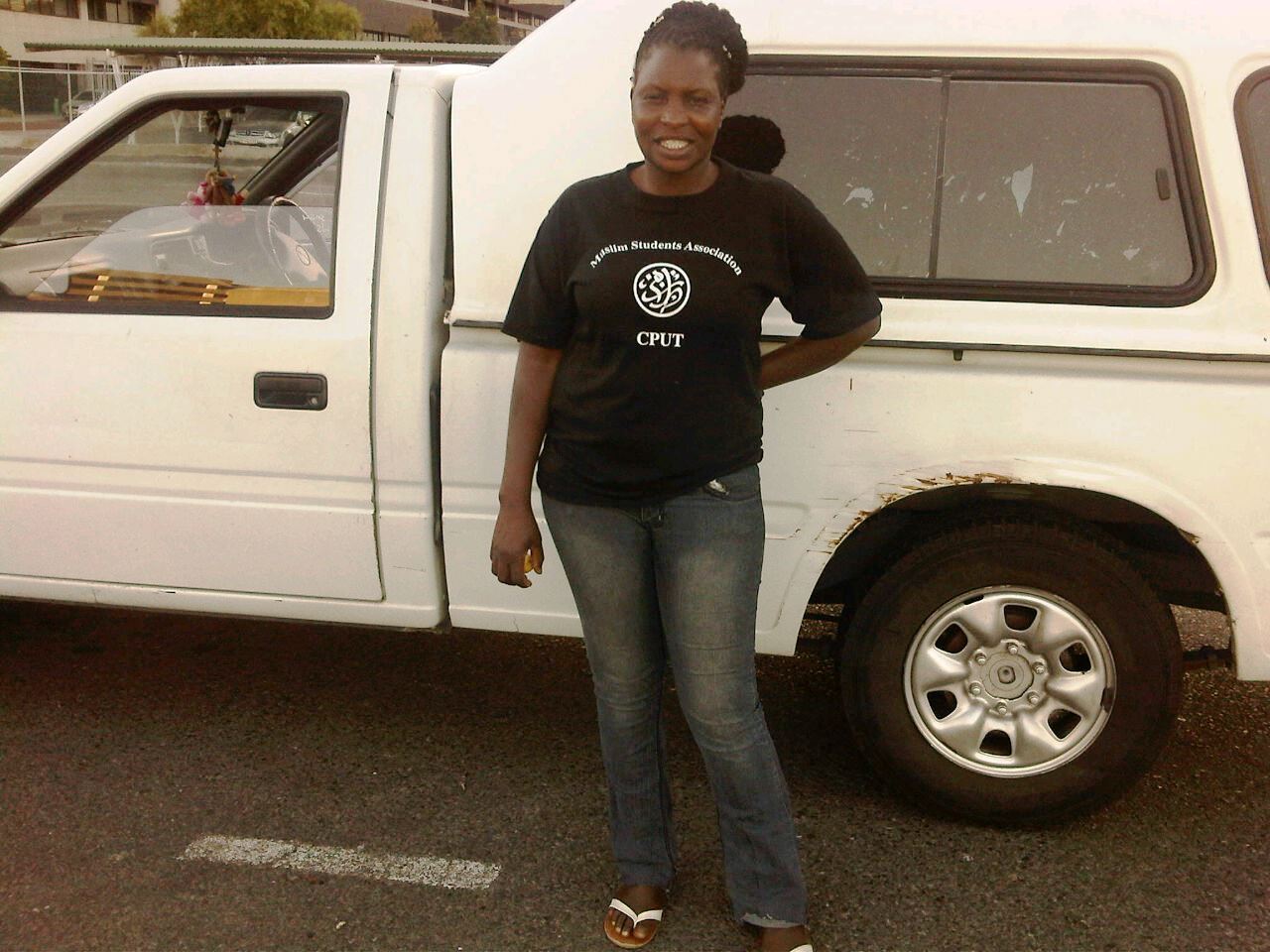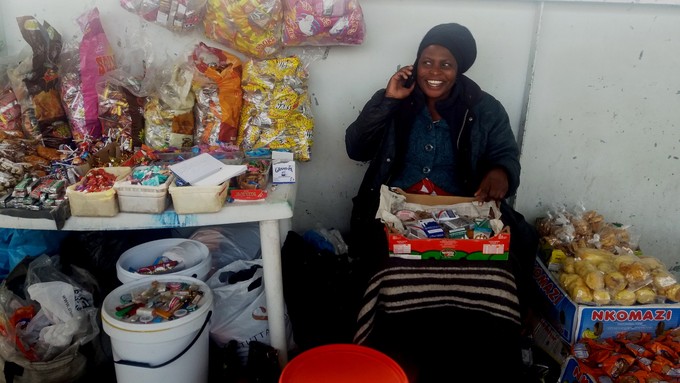Single mother works 16-hour days selling sweets
Gamuchirai Chipuriro has managed to get her child into university
Single mother Gamuchirai Chipuriro, 41, from Zimbabwe, has had to work 16-hour days, six days a week, selling sweets and chips in all weathers, in order to put one of her children through university.
Chipuriro, who comes from Guruve in Mashonaland Central Province, has a stall at the footbridge on Mutual railway station.
She received her refugee status in 2009.
Her stall is well stocked with items such as sweets, chips, peanuts, lighters and super glue. Every time a train stops, a crowd of people gather at her stall. She keeps her cash float in her lap for speed, because customers are often in a hurry to get to the next train.
Mutual is a busy station, the junction at which the Central Line to Mitchell’s Plain and Khayelitsha splits from the Northern Line to Bellville.
Sometimes, with everyone crowding around her, people steal. She has to be on the lookout. She’s on to them when they distract her by asking the prices of the things she knows they buy every day.
Chipuriro is nicknamed “Overseas” by her customers because she used to jokingly advertise her products as coming from Zimbabwe. The products are all from local wholesalers in Epping and Salt River.
A member of Cape Town Rail Hawkers’ Association, she pays an annual R500 subscription fee.
She started selling after she got frustrated with regular employment. She has worked in a restaurant, as a char, and as a live-in domestic worker for which she was paid R3,000 per month.
She says, “I started asking people at the stall markets for how much they sold their stuff, at the same time observing how they package items … I started leaving home early and laying out stuff for sale at Thornton Train station from 6:30 to 7:50, to make it on time for work at 8 am. After finishing work at 5 pm, I would rush to Mutual station entrance and lay out my stuff. At that time, few people were selling. I decided to stop working and specialise in selling.”
She concentrated on cigarettes as it was more profitable. Competition was stiff.
In 2010, she was offered the spot she now sells from by a South African woman.
She wakes up at 4:20 am to load her car. “By 5:30 am, my stall should be displayed and ready for the first customers who get off the 5:45 am train. During the week, I finish work at seven, then go to wholesale shops to buy stuff. I work on Saturdays and rest on Sundays.”
Her peak hours are 6 to 8:30 am and 4:30 to 5:30 pm.
She says her average profit per day is R200, on good days R300. A bad day is R150. She also has two more stalls on the bridge from the platform which are run by her nephews.
Typical items include biscuits. She buys 50 for R40, and sells them at R1 each. Smoothies and Halls are her best sellers. She buys 50 Smoothies for R8.50 and sells them for 30 cents each, netting a profit of R6.50. She has two empty plastic containers cut into different sizes to measure out nuts in packages for R1 and R2. While other vendors are selling Nik Naks for R1,50, she is still selling for a rand a packet. She said she gets less profit, but a quick return since they sell fast.
Various people bring her stuff to sell and she takes a cut.

She has three children; two are at the University of Zimbabwe, one studying for a Bachelor of Education and the other social work, and her youngest child has finished O-levels at school in Zimbabwe (grade 11 in South Africa).
“When the children are here for a vacation, they help with selling. I know for a university student, it’s a bit embarrassing. They have their pride, but they know that this is our source of income. If they don’t help, they won’t be able to have material stuff they need for university,” she says.
Chipuriro completed a child care nursing course in 2014 and worked as a caregiver four nights a week for R450 a shift. But she stopped a month ago. She still takes part time jobs, but is trying to concentrate on her business. In the long term, she wants to employ someone to run her stall too.
She says, “I want to have a decent job. There is too much labour in this job.”
Chipuriro has to work in the cold and the wind and even when it’s raining. She uses a big piece of plastic to protect her goods from the rain.
The Hawkers’ association had everyone agree to sell cigarettes for R2.50 each. She preferred to sell for R2, which gave her less profit but a quicker return. With the new price, cigarette sales have slowed, she says.
Also, wholesalers don’t have as many bulk promotions as before.
Yet out of all this labour, she pays her rent of R3,000, and the university fees and accommodation of $1,000 (about R15,000) for her daughter. The other child’s university fees are being paid by a relative who is based in the US. Chipuriro also managed to buy an Isuzu bakkie for R35,000.
Support independent journalism
Donate using Payfast

Don't miss out on the latest news
We respect your privacy, and promise we won't spam you.
Next: Telling the story of the“Upington 26”
Previous: No justice for Patrick Sobutyu two years after he was shot by police
© 2016 GroundUp. 
This article is licensed under a Creative Commons Attribution-NoDerivatives 4.0 International License.
You may republish this article, so long as you credit the authors and GroundUp, and do not change the text. Please include a link back to the original article.

